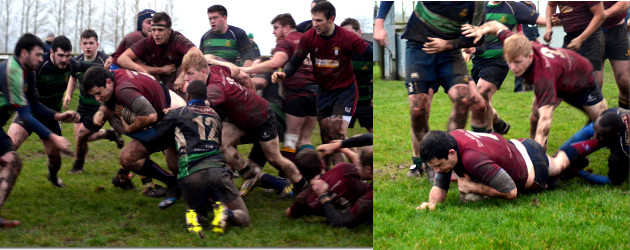In the digital age, rugby clubs need more than just strong players and dedicated coaching staff – they need a powerful online presence. A well-designed website serves as the digital headquarters for your rugby club, providing essential information to current members while attracting potential players, supporters, and sponsors.
Why Rugby Clubs Need Professional Websites
Rugby clubs across Northern Ireland, Ireland, and the UK face unique challenges in member recruitment, community engagement, and funding. A strategic online presence addresses these challenges head-on:
• Member Communication: Websites provide a centralised platform for announcements, fixtures, results, and training schedules
• Supporter Engagement: Match reports, player profiles, and club news keep the wider community connected
• Sponsor Attraction: Professional websites showcase your club to potential sponsors and partners
• Revenue Generation: Online merchandise sales, event bookings, and membership payments streamline club finances
• Historical Record: Digital archives preserve club achievements and milestones for future generations
“Rugby clubs that invest in professional websites typically see a 30% increase in new membership enquiries and significantly improved communication with existing members,” notes Ciaran Connolly, Director of ProfileTree, a digital agency with extensive experience supporting sports organisations.
Essential Features for Rugby Club Websites
Whether you’re representing a premiership powerhouse or a grassroots community club, certain website elements are non-negotiable:
1. Mobile-Friendly Design
With over 60% of web traffic coming from mobile devices, your rugby club website must look and function flawlessly on smartphones and tablets. Professional website development ensures responsive design that adapts to all screen sizes.
2. Fixture and Results Management
Your fixture list and match results should be easy to find and automatically updated. Integration with league management systems can automate this process, saving administrators valuable time.
3. Team and Player Profiles
Showcase your squads with dedicated sections for teams and individual player profiles. This builds club identity and gives recognition to your players.
4. News and Social Media Integration
Regular updates keep your website fresh and give visitors reasons to return. Social media integration amplifies your content and creates a connected digital ecosystem.
5. Membership Management
Online registration and payment systems streamline the administrative burden of managing memberships. This improves the experience for both members and club officials.
6. Sponsorship Showcase
Create dedicated areas to highlight commercial partners and sponsors, providing value for their investment in your club.
A Note on Accessibility
Rugby is for everyone, and your website should be too. Ensuring your site meets accessibility standards isn’t just good practice – it’s increasingly becoming a legal requirement.
The Website Development Process for Rugby Clubs
Building an effective rugby club website involves several key stages:
1. Planning and Research
Before diving into design, take time to understand your club’s unique needs and objectives. Research competitor websites and identify what works well and what could be improved.
A web development company with experience in the sports sector can help identify the most important features for your specific context.
2. Design and User Experience
Your website design should reflect your club’s identity while prioritising user experience. Clean navigation, logical information architecture, and brand consistency are paramount.
Consider how different user groups will interact with your site:
• Prospective players seeking information about joining
• Existing members checking training times or match details
• Parents researching youth programmes
• Potential sponsors evaluating partnership opportunities
• Media looking for club information or quotes
3. Content Creation
Quality content forms the backbone of your website. This includes:
•Club history and values
•Team information
•Training details
•Membership options
•News articles and match reports
•Contact information
•FAQs
High-quality photography showcasing your facilities, teams, and matches adds significant value. Video content, such as match highlights or player interviews, can further enhance engagement.
4. Development and Testing
Professional website design services ensure your site is built on robust foundations with clean code and optimal performance. Before launch, comprehensive testing across devices and browsers is essential.
5. Search Engine Optimisation (SEO)
For your club website to reach its potential, it needs to be discoverable through search engines. Working with SEO companies in the UK that understand the rugby landscape can significantly boost your visibility.
Local SEO is particularly important for rugby clubs, as many searches will be location-based. Optimising for phrases like “rugby club in [your area]” can drive significant traffic from potential members in your community.
6. Launch and Training
Once your website is live, ensure club administrators are trained to manage content updates. Documentation and support resources will help maintain website quality even as committee members change.
7. Ongoing Maintenance and Growth
A website is never truly “finished.” Regular updates, security patches, and feature enhancements keep your digital presence fresh and functional.
Common Challenges and Solutions
Rugby clubs often face similar hurdles when developing and maintaining websites:
Challenge: Limited Budget
Solution: Platforms like WordPress offer cost-effective solutions without compromising quality. Agency services can often provide scalable packages designed specifically for sports clubs.
Challenge: Technical Expertise
Solution: User-friendly content management systems empower non-technical volunteers to manage website content. Training and documentation can bridge knowledge gaps.
Challenge: Content Creation
Solution: Distribute responsibility among committee members, coaches, and team captains. Create content templates to maintain consistency.
Challenge: Local Visibility
Solution: SEO specialists in Belfast and across the UK can implement local SEO strategies to improve regional visibility.
Case Study: Lisburn Rugby Club
Lisburn Rugby Club’s website transformation illustrates the impact of strategic digital development. After implementing a comprehensive website redesign with integrated membership management, the club experienced:
• 42% increase in online membership applications
• 35% reduction in administrative time spent on fixture communications
• 28% growth in merchandise sales
• Three new sponsorship inquiries in the first month after launch
While this example specifically mentions Lisburn (which appears in the InTouch Rugby content), the principles apply to rugby clubs of all sizes.
Beyond Rugby: Multi-Sport Club Websites
Many rugby clubs operate as part of broader sporting organisations. In these cases, website architecture must accommodate multiple sports while maintaining clear navigation and branding.
•Multi-sport websites benefit from:
•Shared infrastructure and costs
•Cross-promotion between sports
•Unified membership systems
•Centralised venue management
•Integrated booking systems
The same development principles apply, but with additional consideration for information architecture to prevent overwhelming visitors.
Future-Proofing Your Club Website
Technology evolves rapidly, and forward-thinking rugby clubs should consider emerging trends:
• Live Streaming: As bandwidth improves, more clubs are offering live match streams
• Enhanced Analytics: Data-driven insights help optimise both website performance and club operations
• AI and Automation: From chatbots answering common questions to automated fixture notifications
• Virtual Reality: Virtual tours of facilities can attract new members and sponsors
• Progressive Web Apps: Combining the best of websites and mobile apps for enhanced user experience
Conclusion
A well-designed website represents a significant asset for any rugby club. It streamlines operations, enhances communication, and projects professionalism to the wider community.
By understanding the unique requirements of rugby organisations and implementing best practices in web development, clubs can create digital experiences that serve existing members while attracting new players, supporters, and sponsors.
Whether you’re starting from scratch or revamping an existing site, the investment in professional web development pays dividends through improved efficiency, enhanced engagement, and strengthened community connections.
For rugby clubs looking to elevate their digital presence, partnering with agencies that understand both technology and sport creates the optimal foundation for online success.




